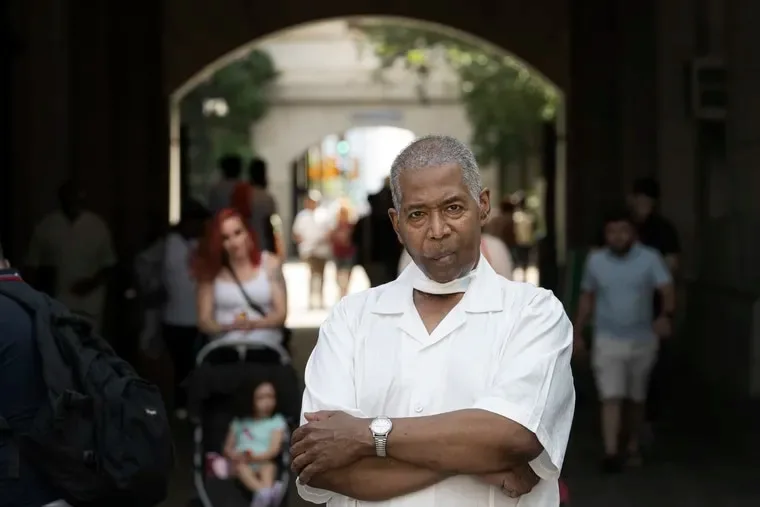
When I was growing up, sometimes classmates told me that I wasn’t “Black enough.” They said this because I used standard English, and I didn’t think the way everyone else did or like the same things they did. Now at 70 years of age, I’m still not exactly sure what “Black enough” means.
Still, I’m fairly certain my opinion that reparations aren’t a good way for America to atone for the sin of slavery will once again qualify me as not being “Black enough” in some people’s eyes.
By reparations, I mean it the way many Black Americans see it: a large monetary payout putting hundreds of thousands of dollars or even more into our pockets.
Now it’s time for a bit of history.
The issue of reparations for formerly enslaved Black Americans goes back to Jan. 16, 1865, when Gen. William T. Sherman issued Special Field Order No. 15. Sherman ordered 40 acres of land for newly freed Black families. All in all, tens of thousands of people were to be granted land from about 400,000 acres stretching from Charleston, S.C., to the St. John’s River in Florida.
But President Andrew Johnson overturned the order in the fall of 1865. The land was returned to the original plantation owners and thousands of Black people were pretty much left in the cold.
Ever since then, the question of reparations has loomed over American society, as our nation grapples with how to right the wrongs perpetrated against millions of formerly enslaved people, and their descendants. Even in Philadelphia, two members of City Council have proposed creating a task force to study whether the city can pay reparations to Black people.
» READ MORE: Local ‘reparations’ plans make promises they can’t keep | Opinion
But let’s imagine a substantial payout — at least $1 million — to each Black American who is descended from someone who was once enslaved.
Gone would be the widespread understanding that Black people are disadvantaged when it comes to leading a successful life, maintaining families, or owning property. In its place would be a “What do you have to complain about?” reaction to any struggle facing a Black person.
Gone, too, I suspect, would be much of the public’s compassion for any Black person who believed they were being treated unfairly because of race. Reparations won’t stop people from being racist, from saying or doing unkind things to Black people, but reparations might make it harder for Black people to call attention to racism when it emerges.
I also wonder if reparations could even further entrench identity politics, to the point where someone’s “Blackness” (and the big reparations payout associated with it) would be all anyone sees, preventing us from being judged by the content of our character instead of the color of our skin.
Nah, the reality is that reparations — as many Black people imagine it — won’t happen. Instead, our society will keep dumping millions of dollars into community programs that don’t have much impact on the poverty and other ills plaguing Black neighborhoods, but that’s about it. Think of the money that’s already been dumped into violence prevention programs of questionable efficacy in our city.
The reality is that reparations — as many Black people imagine it — won’t happen.
In other words, status quo. A few million dollars spread here and there, and lots and lots more talk, but that’s about it.
But how about this approach: Instead of a big cash payout, which could do little more than breed resentment from groups who didn’t get one, Black Americans who are descended from the formerly enslaved could have access to a fund for their education — say, $40,000 for college tuition or trade school per year, depending on the overall cost.
Maybe even a broader approach could work. Recently, Gov. Josh Shapiro created a program that will direct millions in federal dollars over five years to reimburse organizations that train new infrastructure workers on the job. Why not instruct the organizations to focus their training on Black workers? The program — which Shapiro’s team says is the largest investment in workforce training in Pennsylvania history — sets aside $400 million and could create up to 10,000 jobs. That works out to about $40,000 for each worker that’s trained.
There’s that 40 figure again.
I say, let’s sweeten that deal and take it to the national level, with special focus given to Black returning citizens and directing them into training for those good-paying infrastructure jobs. Jobs that sustain families and enable the buying of homes. Even better: Direct some of those infrastructure contracts to Black-owned construction companies. This approach would have a huge impact on Black Americans — and all Americans.
I may not agree with reparations the way a lot of Black people view it, but I say it’s damn time to really right the wrongs that still affect us.
Larry Miller is a former police reporter for the Philadelphia Tribune. He is a lifelong resident of Philadelphia.


